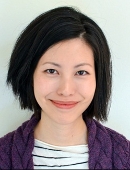
Alice H Huang, PhD
About Me
Dr. Alice Huang is an Assistant Professor in the Leni and Peter W. May Department of Orthopaedics at the Icahn School of Medicine at Mount Sinai in New York City. Dr. Huang graduated from Barnard College and the School of Engineering and Applied Science at Columbia University with a B.A. in Asian/Middle Eastern Studies and a B.S. in Biomedical Engineering. She then completed her PhD in Bioengineering at the University of Pennsylvania. Dr. Huang's graduate research was devoted to the mechanobiology of mesenchymal stem cell differentiation for cartilage tissue engineering. Following the completion of her graduate studies, Dr. Huang conducted postdoctoral research in Developmental Biology at Shriners Hospital for Children, where she investigated mechanisms of musculoskeletal development and integration during embryogenesis. In 2014, Dr. Huang joined the faculty at Mount Sinai as an Assistant Professor in the Department of Orthopaedics, with a secondary appointment in Developmental and Regenerative Biology.
Language
Multi-Disciplinary Training Areas
Development Regeneration and Stem Cells [DRS], Disease Mechanisms and Therapeutics (DMT)
About Me
Dr. Alice Huang is an Assistant Professor in the Leni and Peter W. May Department of Orthopaedics at the Icahn School of Medicine at Mount Sinai in New York City. Dr. Huang graduated from Barnard College and the School of Engineering and Applied Science at Columbia University with a B.A. in Asian/Middle Eastern Studies and a B.S. in Biomedical Engineering. She then completed her PhD in Bioengineering at the University of Pennsylvania. Dr. Huang's graduate research was devoted to the mechanobiology of mesenchymal stem cell differentiation for cartilage tissue engineering. Following the completion of her graduate studies, Dr. Huang conducted postdoctoral research in Developmental Biology at Shriners Hospital for Children, where she investigated mechanisms of musculoskeletal development and integration during embryogenesis. In 2014, Dr. Huang joined the faculty at Mount Sinai as an Assistant Professor in the Department of Orthopaedics, with a secondary appointment in Developmental and Regenerative Biology.
Language
Multi-Disciplinary Training Areas
Development Regeneration and Stem Cells [DRS], Disease Mechanisms and Therapeutics (DMT)